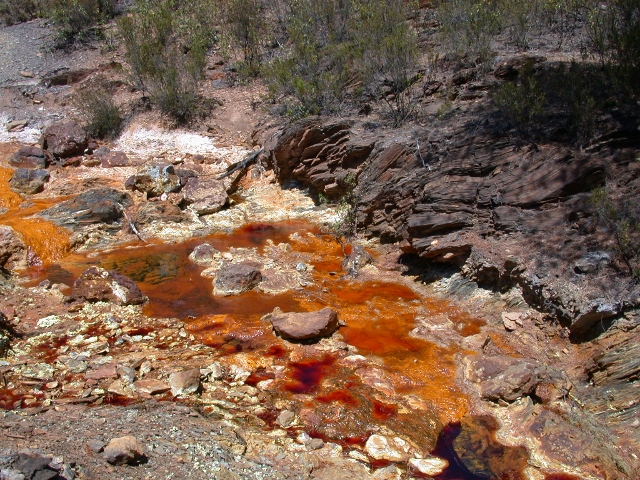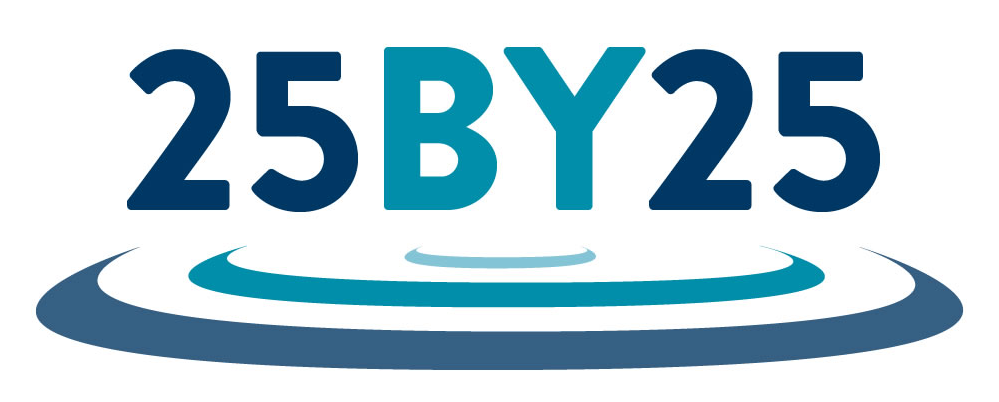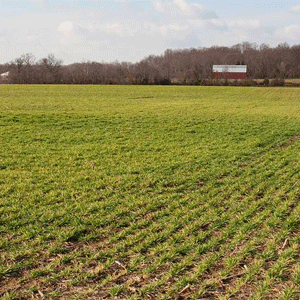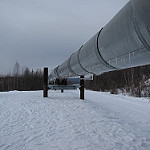|

photo credit: NASA
Sulfide Mining Debate Continues in the Northland
Less than two weeks remain until the U.S. Forest Service begins its two listening sessions on a proposed 20-year mineral withdrawal in the Superior National Forest. The first will take place on July 18 at the RiverCentre in St. Paul, and the second will be held at Virginia High School in the Iron Range. These hearings will be used in development of an environmental impact statement for this proposal, which would include more than 230,000 acres of national forest land in the Rainy River watershed. The Forest Service is also taking comments through August 11 by email at comments-eastern-superior@fs.fed.us.
The comment period continues to be contentious. The mineral withdrawal would head off an enormous risk of toxic sulfide pollution, like the effects pictured above, in Northern Minnesota’s vulnerable waters. And groups like Friends of the Boundary Waters Wilderness and Save the Boundary Waters have issued calls for volunteers to speak up at the hearings on this important issue. Pro-mining advocates have announced that they will boycott the St. Paul hearing. It will take concerted action by concerned citizens to make sure that the Forest Service takes the critical environmental hazards of copper sulfide mining into account in their decision.
Meanwhile, Congressman Rick Nolan has introduced a bill, HR 3115, that would force the Superior National Forest to accept a land exchange with PolyMet for their open-pit sulfide mine, with the land value set at at the incredibly low price of $550 per acre. Allowing this level of sulfide pollution for such a cheap exchange does a disservice to Minnesotans and our national forests, and MEP has issued the Action Alert below to demand that Minnesota’s federal lawmakers oppose the bill. Thanks to dedicated defenders of Minnesota’s great outdoors, more than 2,000 emails to this effect have been sent to our Senators and Representatives, and we encourage all our friends to join in! Use the Action Alert or call your Senator or Representative to tell them to stand up for public lands and vulnerable waters in Minnesota!

|
 |
Stop bill that lets Polymet pay fire sale prices to turn Superior National Forest land into an open-pit sulfide mine
If Rep. Nolan’s bill becomes law, all challenges to this land exchange on behalf of taxpayers would end and this land exchange would move forward. If PolyMet wants to destroy public land for their sulfide mine proposal, the very least they can do is pay a fair price for it.
We need you to tell Senator Amy Klobuchar, Senator Al Franken and Representatives Tim Walz, Keith Ellison and Betty McCollum to oppose HR 3115!
|
 |
Come to the Forest Service Listening Session in Virginia, MN to speak up on sulfide mining!
(From Friends of the Boundary Waters Wilderness) —The U.S. Forest Service is holding two listening sessions in July to gather input on a proposed 20-year moratorium on the leasing of federal minerals to mining companies in the Superior National Forest upstream of the Boundary Waters. Join us to tell the Forest Service how sulfide mining near the Boundary Waters would affect your wilderness experience.
We want to see passionate Boundary Waters supporters like you on July 25 from 5:00 p.m. – 7:30 p.m. in Virginia. Doors open at 4:30 p.m. and the session will be held in the auditorium. RSVP here!
|
 |

Photo credit: US Fish & Wildlife Service |
Letter: Bees get no help from Minnesota Legislature
(From Detroit Lakes Online, by CURE program director Peg Furshong) — On June 23-24, over 150 people of all ages gathered at Glacial Lakes State Park to learn about the Tallgrass Prairie and just how important this ecosystem is for pollinator habitat. With less than 1 percent of this rare ecosystem left, it is considered the most threatened natural environments, and as such, the animals and insects that live there are threatened as well. But while Minnesotans in our region and beyond care deeply about pollinators, our legislators are out of step. >>Read More.
|

|

photo credit: MPCA |
Proposed Nitrogen Rule wouldn’t do enough for MN waters
The Minnesota Department of Agriculture is currently accepting public comments on its draft Nitrogen Fertilizer Rule, which aims to reduce the amount of nitrate pollution in the state’s groundwater. Nitrate contamination is a serious issue that requires a robust response, and unfortunately, the proposed rule is severely watered-down. It would fail to protect currently uncontaminated groundwater, focusing only on already-impaired waters. It would have a needlessly long 3-year phase-in period after an already 26-year wait on nitrogen standards. And the mandatory best practices it enforces fall short of any meaningful reduction of nitrogen fertilizer use.
The MDA will hold hearings this month in McIntosh and St. Paul – if you can attend, tell the MDA to adopt a rule that will actually benefit state waters! Written comments will also be accepted until August 11.
|
 |
St. Cloud among 10 sites for Dayton’s water quality meetings
(From St. Cloud Times) — Gov. Mark Dayton is organizing town halls throughout Minnesota to discuss water quality. The Democratic governor has made improving the state’s drinking and recreational waters a top priority for his final term in office. He spearheaded a new law requiring buffer zones between cropland and waterways and defended it from GOP attempts to repeal it. >>Read More.
|
 |
10 things to know about the proposed City Loop
(From Rochester Post Bulletin) — Work continues on a proposed City Loop to connect pedestrians and bicyclists to various points in the Destination Medical Center district. Proposed in the original DMC concept plan, the urban trail network seeks to use existing and new pathways to offer connections to green spaces throughout the center of the city as a way of encouraging private investment and enhancing quality of life for residents. St. Paul-based SRF Consulting Group is refining the concept while it works with city staff on transportation plans that also include street use, transit and parking needs related to DMC. >>Read More.
|

|

photo credit: Chesapeake Bay Program |
Applicants needed for EQIB funds; Farmers can apply until Aug. 18
(From Austin Daily Herald) — Mower County agricultural producers and landowners looking to solve natural resource problems on their farms need to contact local conservation staff in advance of a mid-August deadline. Last week, the U.S. Department of Agriculture announced farmers need to apply by Aug. 18 for USDA funding in 2018 under the federal Environmental Quality Incentives Program (EQIP). EQIP is a voluntary program providing financial and technical assistance to ag producers and landowners. These contracts give financial assistance to help plan and implement conservation practices that address natural resource concerns and for opportunities to improve soil, water, plant, animal, air, and related resources on ag land and non-industrial private forestland. >>Read More.
|
 |
 |
Minn. oil pipeline fight stokes threats, fears of Standing Rock
(From MPR News) — Each day for decades, five pipelines have quietly pumped more than 2 million barrels of Canadian crude oil below northern Minnesota’s forests, lakes and rivers to refineries around the Upper Midwest. It’s a network that for years saw little public scrutiny. The lines were built in an era with no federal environmental law requiring studies or public hearings, keeping opposition to a minimum. Those days are gone, replaced by a massive multi-year permitting process that requires transparency and public input — and an environmental movement determined to make its voice heard. >>Read More.
|
|
|